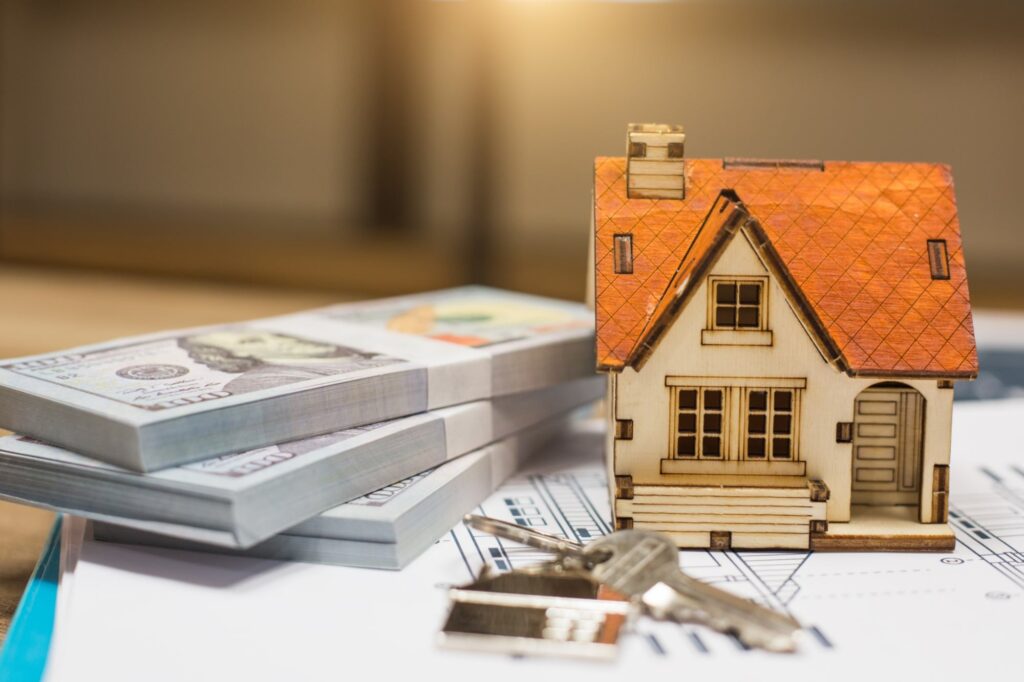Real Estate Investment Tips:-
Real estate remains one of the most stable and profitable investment options for building wealth. Whether you’re a first-time buyer or a seasoned investor, the right strategies can make a significant difference. Let’s dive into the top 10 real estate investment tips for 2025 and break them down with practical steps and advice.
1. Understanding Real Estate Investment
Before diving into real estate, grasp the fundamentals. Real estate investment involves purchasing properties to generate income through rental or resale. It’s essential to understand different types of investments, such as residential, commercial, or REITs (Real Estate Investment Trusts), and determine which aligns with your goals.
2. Top 10 Real Estate Investment Tips for 2025
- Research emerging markets: Look for locations showing rapid growth.
- Consider long-term growth: Invest with a horizon of 5–10 years.
- Diversify property types: Balance residential and commercial investments.
- Leverage technology: Use property management and market analysis tools.
- Prioritize cash flow: Focus on properties that generate steady rental income.
- Invest in sustainable properties: Green buildings are gaining popularity.
- Understand tax benefits: Maximize deductions on property expenses.
- Partner wisely: Work with reliable agents, lenders, and contractors.
- Build a financial cushion: Be prepared for maintenance or market dips.
- Stay adaptable: Real estate trends shift; stay updated.
Real estate remains one of the most reliable avenues for building wealth, but success requires careful planning and strategic execution. Here’s a detailed guide to the top real estate investment tips for 2025:
1. Research Emerging Markets
Identifying high-growth areas is the cornerstone of smart investing. Emerging markets often offer lower entry prices with higher appreciation potential.
- How to identify these markets? Look for areas with:
- Increased job opportunities (tech hubs, industrial expansions).
- Infrastructure developments like highways, airports, or public transit.
- Population growth and demand for housing.
- Example: Cities like Austin, TX, or regions near expanding metropolitan hubs often present excellent opportunities.
- Pro Tip: Use tools like Zillow, Redfin, and local government reports to analyze growth trends.
2. Consider Long-Term Growth

Real estate isn’t a short-term investment. Patience pays off when properties appreciate over time.
- What does long-term growth mean?
- Investing with a 5–10-year horizon ensures that properties gain value and offset initial costs like closing fees and interest.
- Strategies:
- Focus on stable neighborhoods with potential for future development.
- Avoid trends that may not sustain demand long-term (e.g., vacation-only homes in remote areas).
- Example: Suburbs near thriving cities often grow as urban areas become saturated.
3. Diversify Property Types
Putting all your money into one type of property can expose you to risks. Diversification minimizes potential losses.
- Options for diversification:
- Residential (single-family homes, apartments).
- Commercial (offices, retail spaces).
- Industrial (warehouses, manufacturing spaces).
- Vacation rentals in tourist-heavy areas.
- Why it matters: Different property types respond differently to market fluctuations. While residential might suffer during a recession, commercial properties in high-demand locations could thrive.
4. Leverage Technology
Modern tools streamline property management and market analysis, giving investors a competitive edge.
- Tech tools to use:
- Market analysis: CoStar, Mashvisor, or Zillow for market trends and property comparisons.
- Property management: Tools like Buildium or AppFolio for rent collection, tenant screening, and maintenance requests.
- AR/VR tools: Allow potential buyers or tenants to take virtual tours, saving time and increasing appeal.
- Why it’s crucial: Technology saves time, reduces errors, and provides insights that help investors make data-driven decisions.
5. Prioritize Cash Flow
A steady cash flow is essential for sustaining and growing your investments.
- What to look for:
- Properties with a high rental yield.
- Low maintenance costs and predictable expenses.
- Example calculation:
- Monthly rental income: $2,500
- Monthly expenses (mortgage, taxes, maintenance): $1,500
- Cash flow: $1,000/month.
- Pro Tip: Focus on properties in areas with high rental demand to ensure consistent income.
6. Invest in Sustainable Properties
Sustainability is not just a trend—it’s a growing demand from tenants and buyers alike.
- What are sustainable properties?
- Homes with energy-efficient appliances, solar panels, and environmentally friendly construction materials.
- Why they’re valuable:
- Lower utility costs attract tenants.
- Green certifications can boost property value.
- Example: Investing in LEED-certified buildings can yield higher rents and attract eco-conscious buyers.
7. Understand Tax Benefits
Real estate offers numerous tax advantages that can significantly reduce your costs.
- Key deductions to explore:
- Mortgage interest.
- Property taxes.
- Depreciation on the building.
- Maintenance and repair costs.
- Pro Tip: Work with a tax advisor specializing in real estate to maximize deductions and ensure compliance with local laws.
8. Partner Wisely
Your success depends on the quality of your team.
- Who should you partner with?
- Real estate agents: Help find the best properties.
- Lenders: Offer favorable financing terms.
- Contractors: Handle renovations and repairs efficiently.
- How to choose?
- Check reviews and ask for recommendations.
- Verify credentials and ensure they have experience in your market.
9. Build a Financial Cushion
Unexpected costs can derail your investment plans if you’re not prepared.
- Why it’s important:
- Maintenance issues, tenant vacancies, or market downturns can impact your cash flow.
- How much should you save?
- Ideally, set aside 6–12 months’ worth of expenses for each property.
- Pro Tip: Use a separate savings account for emergency funds to avoid dipping into your profits.
10. Stay Adaptable
The real estate market is dynamic, and success depends on your ability to adjust.
- How to stay adaptable:
- Monitor local and global market trends regularly.
- Be ready to shift focus, e.g., from flipping properties to renting them out during a market downturn.
- Stay updated on regulatory changes that may impact your investment (e.g., zoning laws or tax reforms).
- Pro Tip: Attend real estate seminars and subscribe to industry reports to remain informed.

3. Steps to Buy Your First Home
Buying your first home can be both exciting and overwhelming. Follow these steps for a seamless experience:
Step 1: Research the Market
Understand the current real estate landscape in your area. Analyze property prices, demand, and future potential to make an informed decision.
Step 2: Set a Budget
Determine how much you can afford, considering both the purchase price and additional costs like taxes, maintenance, and insurance.
Step 3: Consider Location
The location significantly impacts property value. Look for homes in areas with good schools, connectivity, and amenities.
Step 4: Understand Financing Options
Explore mortgage options, interest rates, and down payment requirements. Get pre-approved for a loan to streamline the buying process.
Step 5: Hire a Real Estate Agent
A professional agent can help you navigate the market, negotiate deals, and find properties that meet your criteria.
Step 6: Inspect Properties
Never skip property inspections. They help identify potential issues, saving you money and future headaches.
Step 7: Plan for the Long Term
Think ahead. Is the property suitable for future needs, such as a growing family or resale value?
4. Tips for Investing in Real Estate
Real estate investment requires careful planning and execution. Here’s how to maximize your success:
- Start small: Begin with a single property and scale up as you gain confidence.
- Work with experts: Consult financial advisors, agents, and contractors.
- Monitor ROI: Regularly evaluate the performance of your investments.
- Know your exit strategy: Decide whether you’ll flip, rent, or hold properties long-term.
5. Research the Market
Knowledge is power in real estate. Research local market conditions, property values, and neighborhood trends. Use tools like Zillow, Realtor.com, and local MLS listings to compare options.
6. Set a Budget
Financial discipline is key. Calculate your income, expenses, and savings to establish a realistic budget. Consider getting pre-approved for a loan to strengthen your negotiating power.
7. Consider Location
“Location, location, location” isn’t just a cliché—it’s a principle. A property in a thriving neighborhood with proximity to schools, workplaces, and amenities will always have higher demand.
8. Understand Financing Options
Explore different financing routes such as:
- Traditional mortgages
- FHA loans for first-time buyers
- Private lending or partnerships
Compare rates, terms, and flexibility to find the best fit.
9. Hire a Real Estate Agent
Agents are invaluable resources, especially for first-time buyers or complex transactions. They offer expertise, access to exclusive listings, and negotiation skills that can save you money.
10. Inspect Properties
Ensure thorough inspections of every property. Check for structural issues, plumbing, electrical systems, and compliance with local codes. Hire a certified home inspector for a detailed report.
11. Diversify Your Portfolio
Don’t put all your eggs in one basket. Diversify your investments across property types (residential, commercial, industrial) and geographical areas to reduce risk.
12. Stay Informed on Market Trends
Keep up with:
- Interest rate changes
- Government policies
- Local demand-supply dynamics
Being informed allows you to anticipate market shifts and make strategic decisions.
13. Network with Other Investors
Build a network of like-minded investors to exchange ideas, share experiences, and discover opportunities. Attend real estate meetups, workshops, or join online forums.
14. Plan for the Long Term
Real estate isn’t a get-rich-quick scheme. Develop a clear investment strategy aligned with long-term financial goals. Regularly reassess and adjust your plans based on market conditions.
Conclusion
Real estate investment in 2025 offers immense potential for growth if approached strategically. By following these tips and staying informed, you can make sound decisions, maximize returns, and build a robust property portfolio. Start small, research thoroughly, and think long-term to achieve success in the ever-evolving world of real estate.

FAQs: Top 10 Real Estate Investment Tips for 2025
1. Why should I invest in real estate in 2025?
Real estate remains a stable and lucrative investment option. In 2025, emerging markets, sustainable properties, and advancing technologies offer unique opportunities for growth and profitability. By investing wisely, you can diversify your portfolio and secure steady cash flow.
2. How do I identify emerging markets for real estate investments?
Emerging markets often have:
- Population growth and housing demand.
- Expanding job opportunities.
- Infrastructure developments like new roads, transit systems, or business hubs.
Use tools like Zillow, Redfin, or market analysis reports to evaluate trends.
3. What is the importance of long-term growth in real estate?
Real estate appreciates over time. By investing with a 5–10-year horizon, you can offset initial costs like mortgages and closing fees while benefiting from value appreciation and rental income.
4. Should I invest in residential or commercial properties?
Both have their advantages:
- Residential properties: Provide consistent rental income and are often less complex to manage.
- Commercial properties: Offer higher returns but may require more expertise and capital.
Diversify across both types to balance risks.
5. How can technology help in real estate investment?
Technology streamlines property management, market research, and tenant interactions. Tools like CoStar, Buildium, and AR/VR solutions for virtual property tours make investing and managing properties more efficient.
6. What is cash flow, and why is it important?
Cash flow is the net income from your rental property after expenses like mortgage, taxes, and maintenance. Positive cash flow ensures steady income to reinvest or cover unexpected costs.
7. Why should I invest in sustainable properties?
Sustainable properties, like those with energy-efficient systems or green certifications, appeal to eco-conscious tenants and buyers. They also reduce utility costs and may offer tax benefits, increasing their market value.
8. How can I maximize tax benefits in real estate?
You can claim deductions on:
- Mortgage interest.
- Property taxes.
- Depreciation.
- Maintenance and repairs.
Consult a tax advisor to optimize your deductions and comply with regulations.
9. What factors should I consider when partnering with agents or contractors?
Choose partners with:
- A proven track record.
- Strong recommendations and credentials.
- Expertise in your target market.
Collaborating with reliable professionals ensures smoother transactions and property management.
10. How can I prepare for unexpected costs in real estate?
Set aside a financial cushion equivalent to 6–12 months of expenses per property. This reserve can cover maintenance, vacancies, or market fluctuations without straining your budget.
11. What are some trends shaping real estate in 2025?
Key trends include:
- Increased demand for sustainable and energy-efficient homes.
- Growth in suburban and mixed-use developments.
- The rising popularity of co-living and rental properties due to urbanization.
12. Is real estate a good investment for beginners?
Yes, but start small—such as with a single residential property—and scale up as you gain experience. Work with experts and use available tools to minimize risks.
13. How do I diversify my real estate portfolio?
Invest across different property types (residential, commercial, industrial) and geographical locations. This reduces your dependency on any single market or type of property.
14. What should I know about financing options?
Explore options like traditional mortgages, FHA loans for first-time buyers, or private lending. Compare interest rates, repayment terms, and flexibility to choose what aligns with your financial goals.

15. How can I stay updated on real estate trends?
- Subscribe to industry reports and real estate blogs.
- Attend seminars and webinars.
- Follow market news and government policy updates.
16. What mistakes should I avoid as a real estate investor?
- Over-leveraging (taking on too much debt).
- Neglecting property inspections.
- Failing to research market trends.
- Investing without a financial safety net.
17. Are real estate investment apps reliable?
Yes, many apps like Zillow, Realtor.com, and Mashvisor provide accurate data for market analysis, property comparisons, and portfolio management.
18. What is the future of real estate in 2025?
The future points toward:
- Increased use of technology like AI and VR.
- A shift to sustainable housing.
- A growing preference for mixed-use developments integrating residential and commercial spaces.
19. Can I invest in real estate with little capital?
Yes, you can explore options like:
- Real Estate Investment Trusts (REITs).
- Partnering with other investors.
- Investing in fixer-uppers to renovate and sell.
20. Is real estate still profitable during economic downturns?
Yes, real estate is a long-term investment that often weathers downturns better than other markets. Focus on properties with high demand, such as affordable housing or well-located rentals, to maintain profitability.


